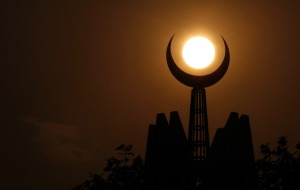On July 20th, shortly after midnight, a 44 year old neuroscientist suffered a massive heart attack while driving down the freeway. His car spun out of control, killing 12 innocent bystanders and wounding scores of others.
This didn’t actually happen (that I know of). But I hope for the reader to take a moment and reflect on how they reacted to the above paragraph, and compare it to the paragraph below:
On July 20th, shortly after midnight, a 24 year old neuroscientist opened fire in a crowded theater. Twelve people were killed, and scores of others were injured.
A very different reaction to that news, I would think. Unfortunately, however, the second event did occur, and many innocent lives were lost as a result.
The reaction to the first paragraph is usually a feeling of remorse, and a reflection on the fragility and randomness of life and death; accompanied by a feeling of sympathy for all the victims (including the driver). However, feelings about the second paragraph are more often going to be dominated by anger, blame, and sympathies for the victims (exclusive of the shooter). Therein lies a major key to understanding this human tragedy.
 In our society, mental and psychiatric illness is not treated in the same vein (no pun intended),or with the same degree of respect, as physical illness. Despite countless years of research indicating the physiologic basis for psychiatric disease, the basic feeling remains that somehow the person suffering from the illness, whether it be depression, psychosis, neurosis, or any other manifestation, is to blame to some degree.
In our society, mental and psychiatric illness is not treated in the same vein (no pun intended),or with the same degree of respect, as physical illness. Despite countless years of research indicating the physiologic basis for psychiatric disease, the basic feeling remains that somehow the person suffering from the illness, whether it be depression, psychosis, neurosis, or any other manifestation, is to blame to some degree.
Gun control advocates have been quick to blame lax gun laws for the shooting, and they have been anxious to use this shooting to restart a national discussion about gun control. I don’t disagree with them, or with the premise that our gun control laws are too lax in this country. Unfortunately, while they are addressing an important issue, they are missing the true root of the problem. The fact is that this man suffered from a severe psychiatric illness which hijacked his actions. And the sad fact is that even if guns were illegal, his illness would have demanded of him that he either find a way to obtain them, or use whatever weapons were at his disposal (such as tear gas and explosives–which he did use) to wreak the havoc that he did.
Assuming news reports are correct, the man, James Holmes, considered himself to be the “Joker” from the second Batman film–a character who sees himself charged with a mission to expose society’s ills through the institution of anarchy. The shooter’s methods, like the Joker’s, were deliberate, highly organized, and intelligent. I am not a psychiatrist, but these characteristics are highly consistent with psychosis, likely schizophrenia. It is unclear whether this was ever even diagnosed, much less treated. In fact, when the suspect’s mother was called, her first words were “you have the right person.” This intimates that the family was potentially aware of these tendencies, even if they were in denial.
I would contend that Mr. Holmes’ psychiatric disease was allowed to progress to this homicidal conclusion precisely due to our inability as a society to deal with it as a true medical illness. The taboos associated with psychiatric disease of all variants are so strong and pervasive that patients are often unwilling to seek treatment, families remain in denial, and proper precautions and treatment are not undertaken. Imagine the reaction among his peer circle or his employers if he told them he was taking medications to control schizophrenia, and compare that to the reaction they would have if he told them he was taking high blood pressure medication. These social mores are a strong disincentive to seek treatment; and a lack of treatment is what leads so many psychiatric patients to end up at the end stage of their disease–gravely disabled, a danger to themselves, or a danger to others. The end stage manifestations then reinforce the social taboo, and the vicious cycle continues.
What happened in Colorado is inexcusable, and I am not suggesting a lack of culpability on the part of the shooter by any means. However, if we are to use this tragedy as a springboard to a social discussion, let’s make sure that we at least have the correct discussion. I believe that as a society, we should grieve for all the victims of this heinous, preventable strategy, including for the young man whose brain was hijacked by a relentless disease.
